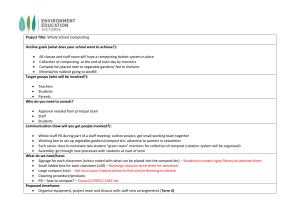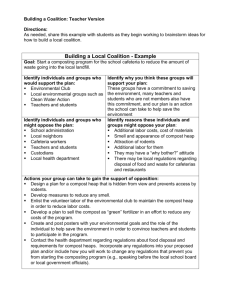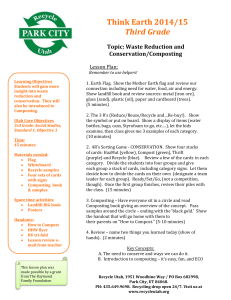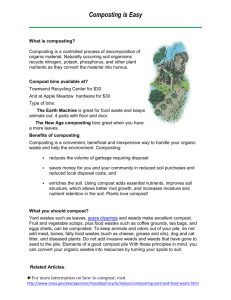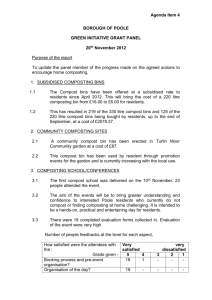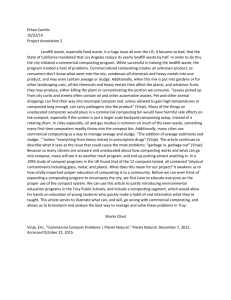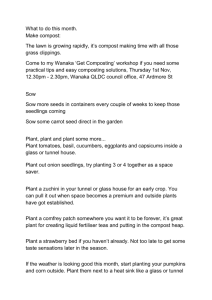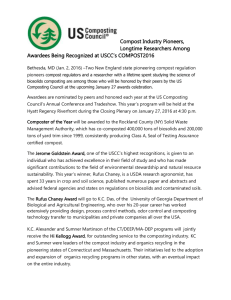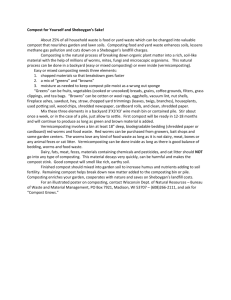Grafton Composting SOP
advertisement
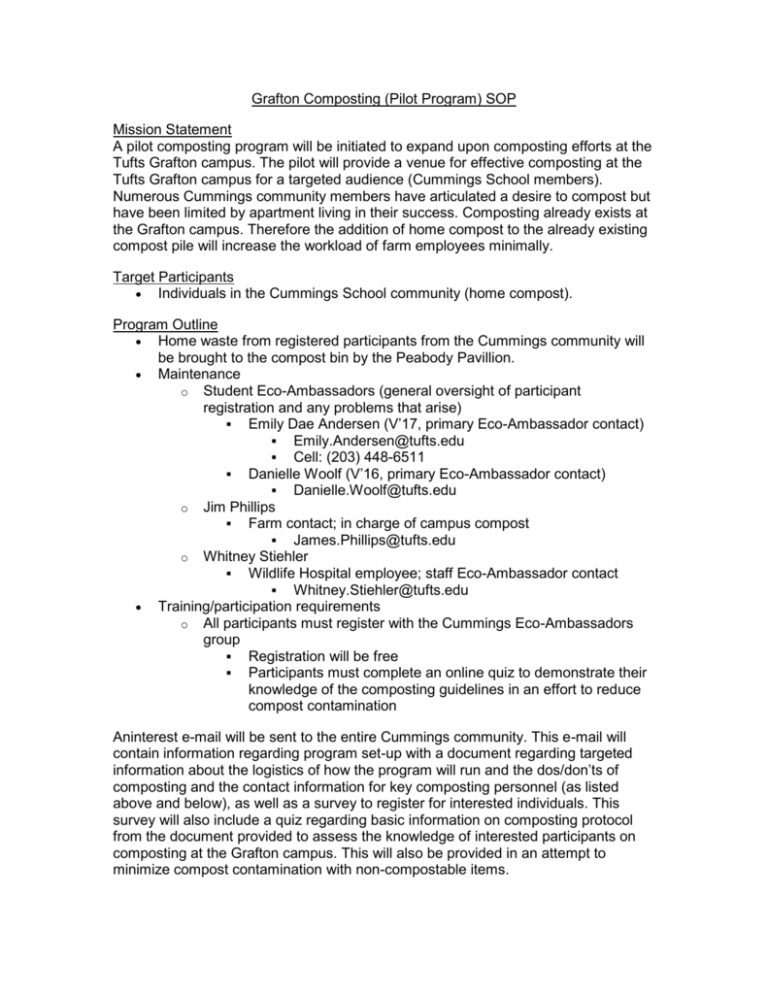
Grafton Composting (Pilot Program) SOP Mission Statement A pilot composting program will be initiated to expand upon composting efforts at the Tufts Grafton campus. The pilot will provide a venue for effective composting at the Tufts Grafton campus for a targeted audience (Cummings School members). Numerous Cummings community members have articulated a desire to compost but have been limited by apartment living in their success. Composting already exists at the Grafton campus. Therefore the addition of home compost to the already existing compost pile will increase the workload of farm employees minimally. Target Participants Individuals in the Cummings School community (home compost). Program Outline Home waste from registered participants from the Cummings community will be brought to the compost bin by the Peabody Pavillion. Maintenance o Student Eco-Ambassadors (general oversight of participant registration and any problems that arise) Emily Dae Andersen (V’17, primary Eco-Ambassador contact) Emily.Andersen@tufts.edu Cell: (203) 448-6511 Danielle Woolf (V’16, primary Eco-Ambassador contact) Danielle.Woolf@tufts.edu o Jim Phillips Farm contact; in charge of campus compost James.Phillips@tufts.edu o Whitney Stiehler Wildlife Hospital employee; staff Eco-Ambassador contact Whitney.Stiehler@tufts.edu Training/participation requirements o All participants must register with the Cummings Eco-Ambassadors group Registration will be free Participants must complete an online quiz to demonstrate their knowledge of the composting guidelines in an effort to reduce compost contamination Aninterest e-mail will be sent to the entire Cummings community. This e-mail will contain information regarding program set-up with a document regarding targeted information about the logistics of how the program will run and the dos/don’ts of composting and the contact information for key composting personnel (as listed above and below), as well as a survey to register for interested individuals. This survey will also include a quiz regarding basic information on composting protocol from the document provided to assess the knowledge of interested participants on composting at the Grafton campus. This will also be provided in an attempt to minimize compost contamination with non-compostable items. Upon successful registration, participants will be allowed to bring pre-approved compostable waste from their homes to the drop-off location near the barns by the Amelia Peabody Pavilion. The drop-off location (specifically, the dumpt ruck located in front of Goat Barn 1) will be appropriately labeled with a sign of what can and cannot be composted (listed below), and will also include the student EcoAmbassador contact email (cummings.eco.ambassadors@gmail.com). Compost Items Accepted/Approved: o Fruits, vegetables, egg shells, fish bones and shellfish, dairy products, leaves/weeds, lawn clippings Not Accepted: o Meat, “compostable” plates and utensils, large sticks/branches, paper towels Contacts Staff Eco-Ambassadors Whitney Stiehler Elizabeth Lauzon Betsy Byrum Tina Woolston Dr. Maureen Murray Student Eco-Ambassadors Danielle Woolf Emily Andersen Farm Staff Jim Phillips Administration Dean Deborah Kochevar Barbara Berman Joe McManus Campus Police Sgt. Glenn McCune o Names of registered participants will be given to Sgt. McCune as the drop-off location is just past location of authorized personnel only Budget Sign to place at compost drop-off site o Printing and lamination cost will be covered by money that has already been set aside for environmental purposes Future Goals Provide composting for both front of the house and back of the house waste Elm’s Cafe o Establish a student work-study position to aid in compost transfer/maintenance This SOP and additional information on composting and sustainability will be available for future reference on the Student Eco-Ambassador website: http://sites.tufts.edu/studentecoambassadors/
